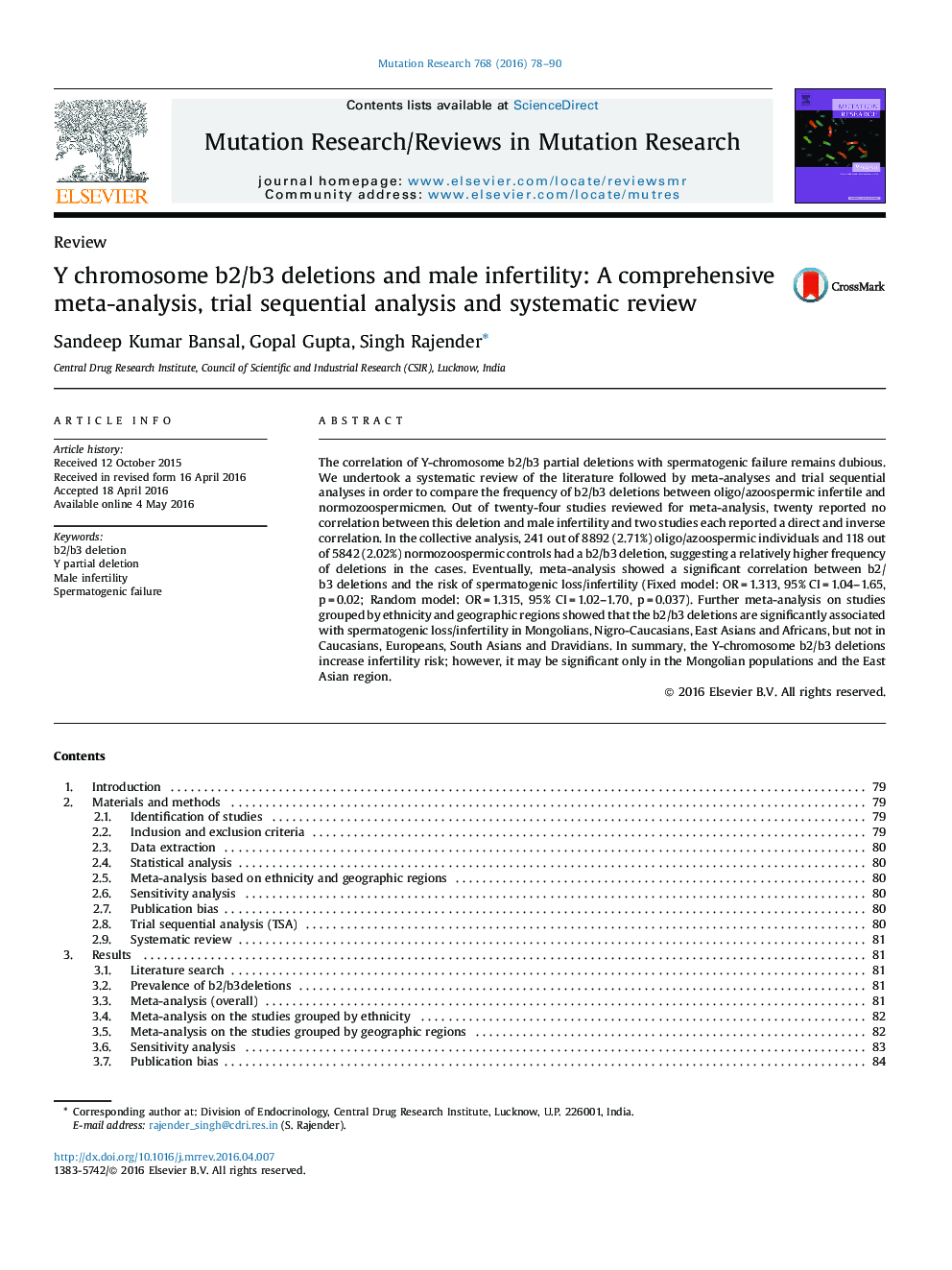| Article ID | Journal | Published Year | Pages | File Type |
|---|---|---|---|---|
| 2149556 | Mutation Research/Reviews in Mutation Research | 2016 | 13 Pages |
The correlation of Y-chromosome b2/b3 partial deletions with spermatogenic failure remains dubious. We undertook a systematic review of the literature followed by meta-analyses and trial sequential analyses in order to compare the frequency of b2/b3 deletions between oligo/azoospermic infertile and normozoospermicmen. Out of twenty-four studies reviewed for meta-analysis, twenty reported no correlation between this deletion and male infertility and two studies each reported a direct and inverse correlation. In the collective analysis, 241 out of 8892 (2.71%) oligo/azoospermic individuals and 118 out of 5842 (2.02%) normozoospermic controls had a b2/b3 deletion, suggesting a relatively higher frequency of deletions in the cases. Eventually, meta-analysis showed a significant correlation between b2/b3 deletions and the risk of spermatogenic loss/infertility (Fixed model: OR = 1.313, 95% CI = 1.04–1.65, p = 0.02; Random model: OR = 1.315, 95% CI = 1.02–1.70, p = 0.037). Further meta-analysis on studies grouped by ethnicity and geographic regions showed that the b2/b3 deletions are significantly associated with spermatogenic loss/infertility in Mongolians, Nigro-Caucasians, East Asians and Africans, but not in Caucasians, Europeans, South Asians and Dravidians. In summary, the Y-chromosome b2/b3 deletions increase infertility risk; however, it may be significant only in the Mongolian populations and the East Asian region.
